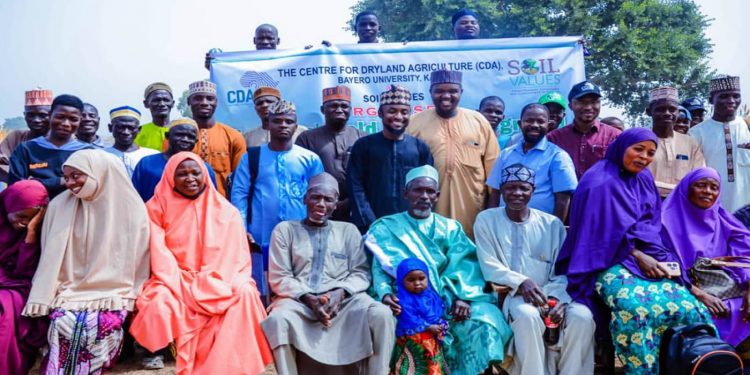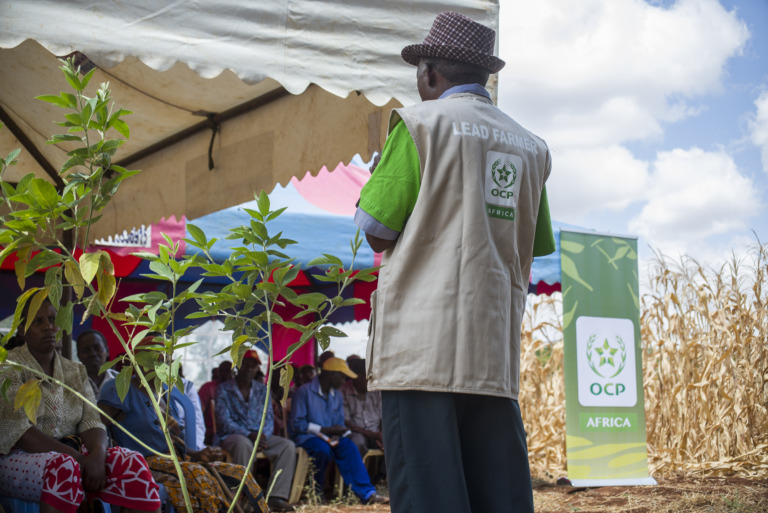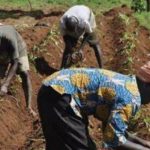Farmers in Kano and Jigawa are gaining new skills to restore soil fertility and improve cowpea production through a training initiative led by Soil Values and the Centre for Dryland Agriculture of Bayero University Kano. The groups organised a field day on Integrated Soil Fertility Management to help smallholder farmers apply practical techniques that can revive degraded soils and strengthen food production.
During the field sessions in Takai, a dry community in Kano State, farmers observed how different soil practices perform under real farm conditions. Demonstration plots displayed traditional methods, inorganic fertilisers, organic fertilisers, and the ISFM approach, allowing farmers to compare results and understand how better soil care can improve yields and reduce losses.
One of the participating farmers said the training had transformed the way cowpea is produced on their land. The farmer explained that learning how to make compost, recycle crop residues, and balance nutrient levels turned the ISFM demonstration into what felt like an open-air classroom, giving them new clarity on soil improvement.
A representative from the CDA’s research department described the field day as part of a long-term Soil Values project funded by the Government of the Netherlands. The programme is designed to improve land use and support beneficiaries across Kano, Jigawa, and Bauchi by equipping them with hands-on strategies that can boost crop performance.
A woman farmer who attended the sessions noted that the training strengthened her confidence to manage soil more effectively. She shared that she now feels equipped to apply the knowledge on her own farm and plans to pass the information on to other women in her community.
Speaking about the initiative, a programme official explained that the project is delivered through international development partners and backed by several scientific institutions. He emphasised that the core goal is to close the yield gap, improve soil health, and encourage farmers to return nutrients to the soil to sustain productivity and long-term food security.
The Soil Values project operates across Sahelian regions where drought, desertification, and climate change continue to affect agricultural livelihoods. With a €100m budget, the initiative seeks to restore two million hectares of degraded land across Burkina Faso, Mali, Niger, and northern Nigeria. It also aims to strengthen the resilience of 1.5 million farmers, many of whom are women and young people building small agricultural enterprises.
In Nigeria, the project expects to restore 800,000 hectares of land and directly support 600,000 smallholder farmers. For MSMEs in the agricultural value chain, improved soil fertility means stronger harvests, reduced production risks, and better access to income opportunities across rural communities.










